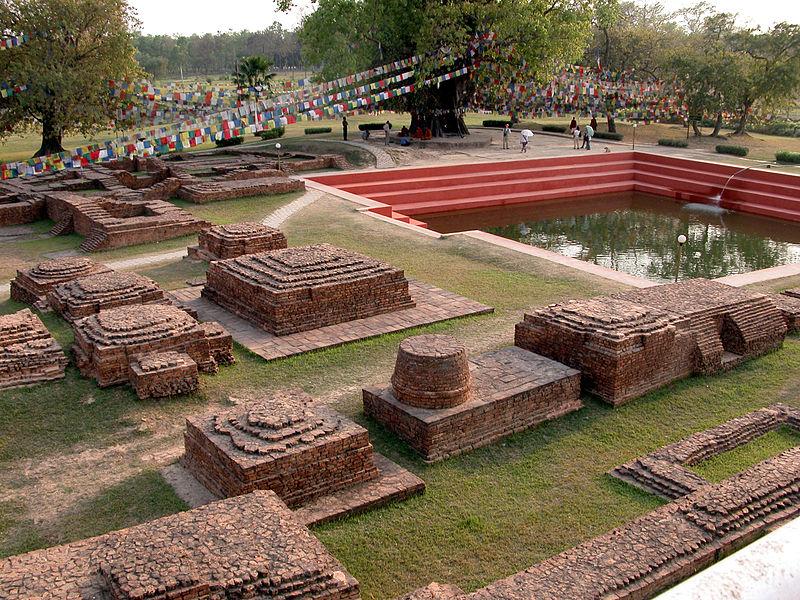Shrine in Nepal reveals archaeological evidence of the founding of Buddhism
The Lumbini shrine in southern Nepal.
Researchers think they've found the oldest Buddhist shrine in the world at Nepla's Lumbini pilgrimage center, dating back to 550 B.C — a revelation that could push the accepted birthdate of the Buddha back by a century.
Lumbini is widely considered to be the birthplace of the Buddha, and researchers discovered compelling early archaeological evidence of the international religion's origins as they dug underneath the existing structure — which is still very much in use, and visited by hundreds of thousands of devotees every year.
More from GlobalPost: Uniting "American Buddhism" with global citizenship
Published in the Antiquity academic journal, the researchers describe their discovery of a timber shrine underneath the existing Maya Devi Temple at Lumbini, which appeared to have a tree growing from an open area.
"This is one of those rare occasions when belief, tradition, archaeology and science actually come together," said archaeologist and leady study author Robin Coningham to CNN of the find, noting that the scientific evidence indicates the real life Buddha might have lived from 563-483 B.C., which are the popularly recognized dates.
Legend has it that the Buddha was born under a tree, where his mother Queen Maya Devi had stopped as she to her father's kingdom.
Lumbini is considered one of Buddhism's four most holy places, per BuddhaNet, and was neglected for centuries until 1895, when a German archaeologist rediscovered the site. The current Maya Devi temple was built over the ancient ruins.
Researchers were given special access to the sacred site, and made sure to make clear their intentions.
"We had almost unique access to the site that probably won't come again for another generation," said Coningham to National Geographic. "For that reason, we made our work completely open and transparent to pilgrims. Their experiences were quite moving to see as we did our work."
The story you just read is accessible and free to all because thousands of listeners and readers contribute to our nonprofit newsroom. We go deep to bring you the human-centered international reporting that you know you can trust. To do this work and to do it well, we rely on the support of our listeners. If you appreciated our coverage this year, if there was a story that made you pause or a song that moved you, would you consider making a gift to sustain our work through 2024 and beyond?
